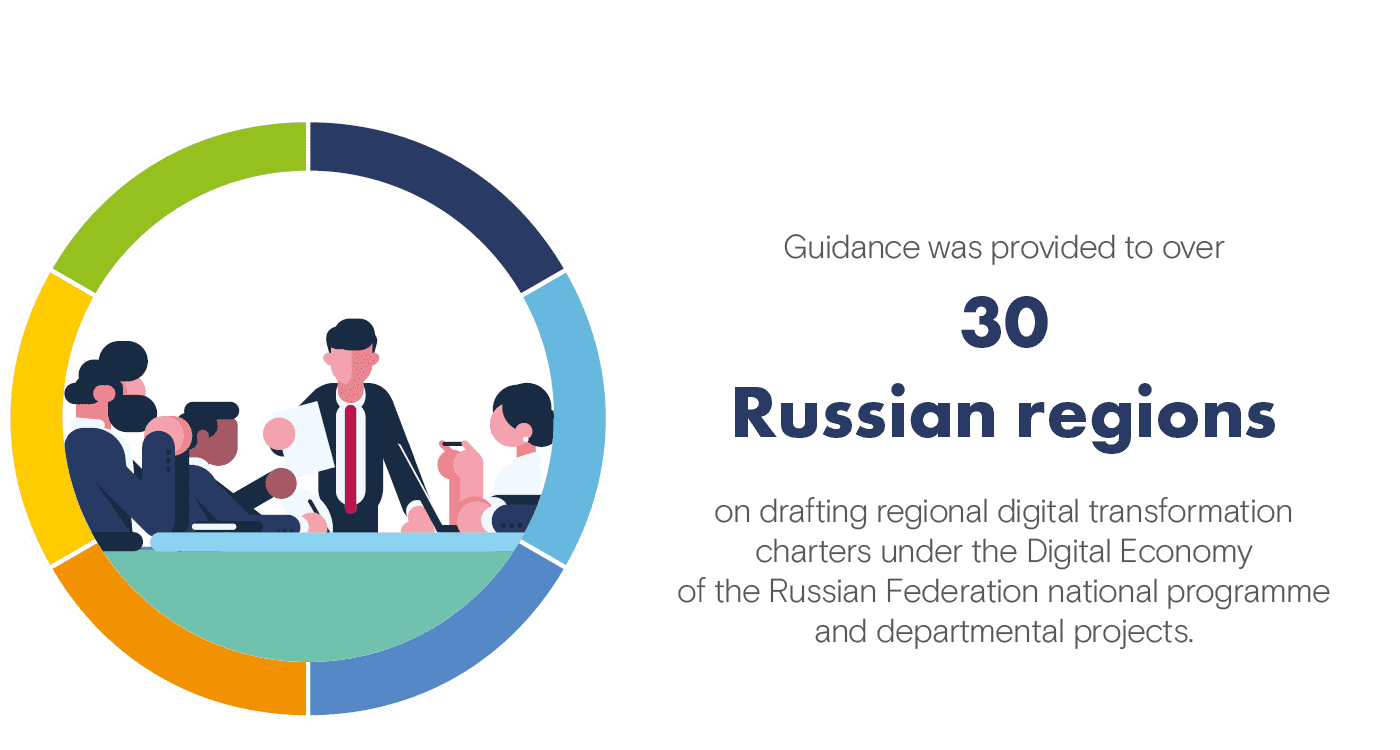Mikhail Oseevsky leads RSPP’s Committee on Digital Economy

In 2018, RSPP’s Committee on Digital Economy brought forward proposals amending 32 draft federal laws and resolutions of the Russian Government. Guidance on drafting regional digital transformation charters was provided to more than 30 Russian regions.
The Committee on Digital Economy of the Russian Union of Industrialists and Entrepreneurs (the “Committee”) first met on 20 December 2017, chaired by Rostelecom’s President, Mikhail Oseevsky. The Committee’s work plan for 2018 was presented and discussed during the meeting.
The new Committee primarily focused on working out a balanced common approach of the business community to digitalisation, primarily across traditional industries. Crosscutting intersectoral priorities were identified, with the first practical steps taken to achievethem. RSPP’s Committee on Digital Economy became fully integrated into the management framework set up for the Digital Economy of the Russian Federation programme. The programme’s roadmaps included over 1,500 initiatives.
According to Mikhail Oseevsky, Chairman of RSPP’s Committee on Digital Economy, the Committee focuses on preparing proposals to encourage digital transformation across the real sector, including the mining, manufacturing, transport, logistics, agriculture, energy, and other industries. One such initiative is developing blueprints for building telecommunications networks and data storage and processing infrastructure to ultimately enhance the investment appeal of different industries.
In 2018, the Committee on Digital Economy brought together representatives of other related Committees and Commissions of RSPP and federal executive authorities to discuss and adopt consolidated decisions on a number of key matters such as:
- building a special Virtual Economic Zone as a tool to promote export-oriented data storage and processing and cloud services
- protecting critical information infrastructure
- implementing new investment projects.
Experts were actively engaged in improving digital economy regulation, with amendments proposed to 32 draft federal laws and resolutions of the Russian Government. Supported by PJSC Rostelecom, RSPP’s Committee on Digital Economy made extensive efforts at the regional level to involve Russian regions in the national digital agenda. The Committee also held a number of off-site meetings and digital transformation forums involving digital economy leaders, governors, and regional businesses in the Volga, Northwestern, Far Eastern, and Southern Federal Districts, with consultations and guidance provided to over 30 Russian regions on drafting regional digital transformation charters under the Digital Economy of the Russian Federation national programme and departmental projects.
In 2019, the Committee on Digital Economy will focus on supporting import substitution in the market for software applications and high-tech equipment that have a strategic importance for advancing the digital economy in Russia.
The Committee on Digital Economy is an allvolunteer body established within the Russian Union of Industrialists and Entrepreneurs in November 2017.

- Experts actively engaged in improving digital economy regulation
- Proposals brought forward to amend 32 draft federal laws and resolutions of the Russian Government
- Extensive efforts made at the regional level to involve Russian regions in the national digital agenda

